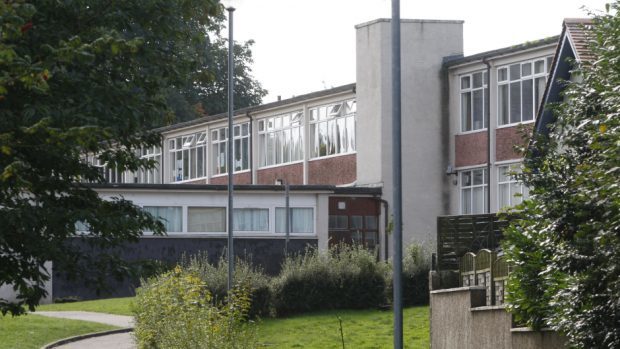Never before seen documents have revealed a row between the UK Government and Dunblane Primary over the demolition of the school gym in which the 1996 massacre took place.
Sixteen children and a teacher were shot dead and fifteen others were injured by gunman Thomas Hamilton in the gym on March 13, 1996.
In newly released Cabinet papers from that year, it has emerged that the primary school board complained to the then prime minister John Major that the UK Government had reneged on a promise to pay for the demolition of the gym, just two weeks after the tragedy.
In a previously unseen letter to Downing Street, sent on March 27, 1996, school board member Gerry McDermott wrote: “You will recall that after your visit to the gym, the scene of the tragedy, you volunteered that the gym should be demolished and replaced.
“On being asked by the headmaster if this would be funded by the government, you confirmed that funding would not be a problem, you even turned to Mr Forsyth and had him signify his agreement.
“It is with come concern that it is now reported that Mr Forsyth has stated that the government will not fund the rebuilding of the gym, but, rather that this should be provided from the funds being donated by the public.
“Such an apparent change of heart and broken promise is a cause of great distress in Dunblane.”
The then Scottish secretary Michael Forsyth replied to Mr McDermott stating that the government “stands by the commitment” to pay for the demolition and replacement of the gym and apologised for the “misapprehension” caused by the reports.
Mr Forsyth also wrote to the director of education in the region that same day asking him to “quickly take hold of this issue and ensure that the school board understands the position”.
He also said: “While I can understand that emotions are still running high in Dunblane, I do find it rather odd that the school board should choose to write direct to the prime minister on this issue without referring it to you first.”
According to press reports from the period, the gym was demolished on April 11, 1996 for free by a local contractor.
The trawl of documents, published by the national archives, also revealed the discussions around the Cabinet table in the immediate aftermath of the incident.
A summary of the discussion, chaired by Mr Major on March 14, noted the concern of Tory ministers over the potential tightening of gun control laws.
The paper stated: “Although there would undoubtedly be strong pressure for a high level judicial inquiry there was a danger that it would become a focus for those who argued that firearms controls should be tightened further and that school security should be enhanced well beyond what would be sensible.
“The incident did not suggest a need for substantive change to firearms law.
“What had happened in Dunblane was the kind of tragedy against which no society could insure completely.
“There was a risk that the judge in charge of that inquiry would come under pressure to make recommendations which would be unwelcome to the government but would be hard to resist.”
Mr Major’s government did eventually pass an amendment to the Firearms Act in 1997 to outlaw all but one type of handgun.
The remaining .22 cartridge handguns were banned when Tony Blair’s Labour government came to power just months later.
Before the ban, around 200,000 of the handguns were legally registered in the UK.
